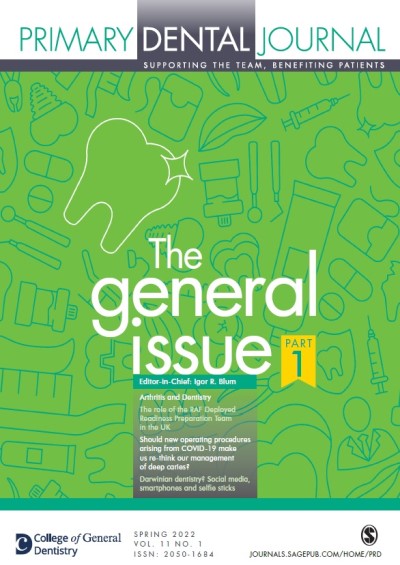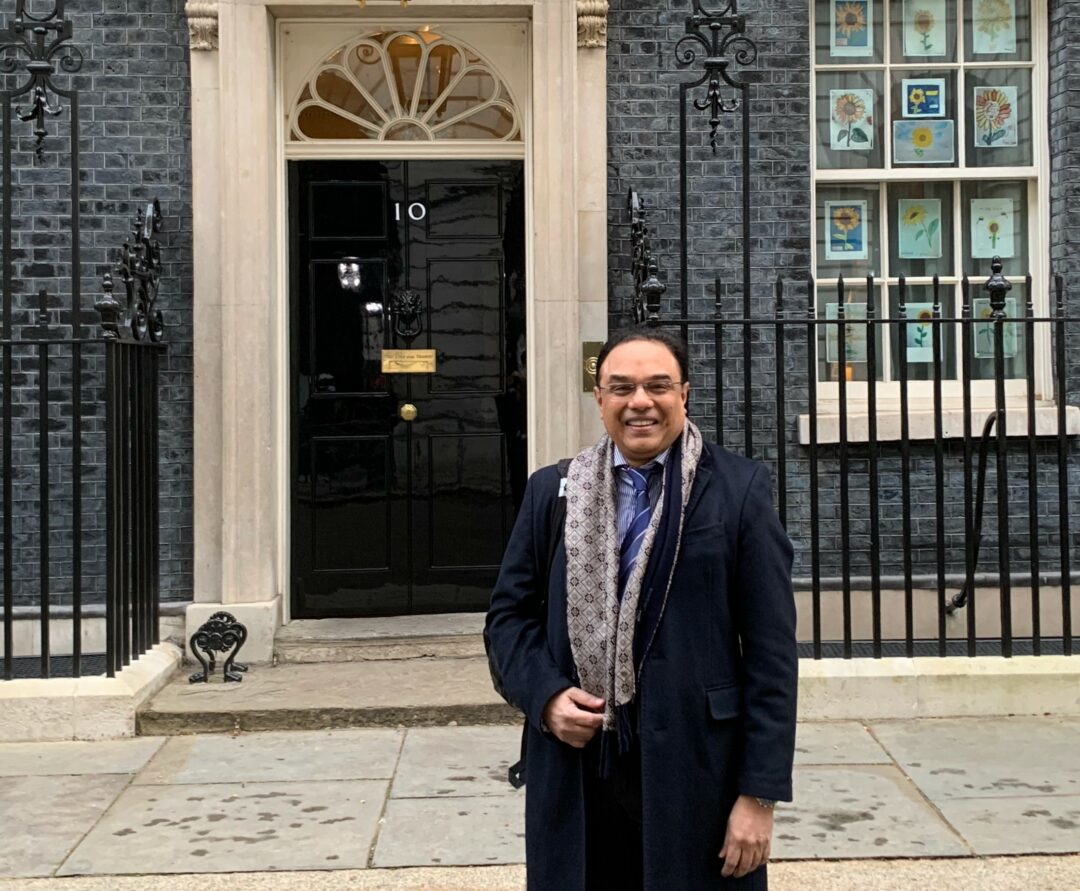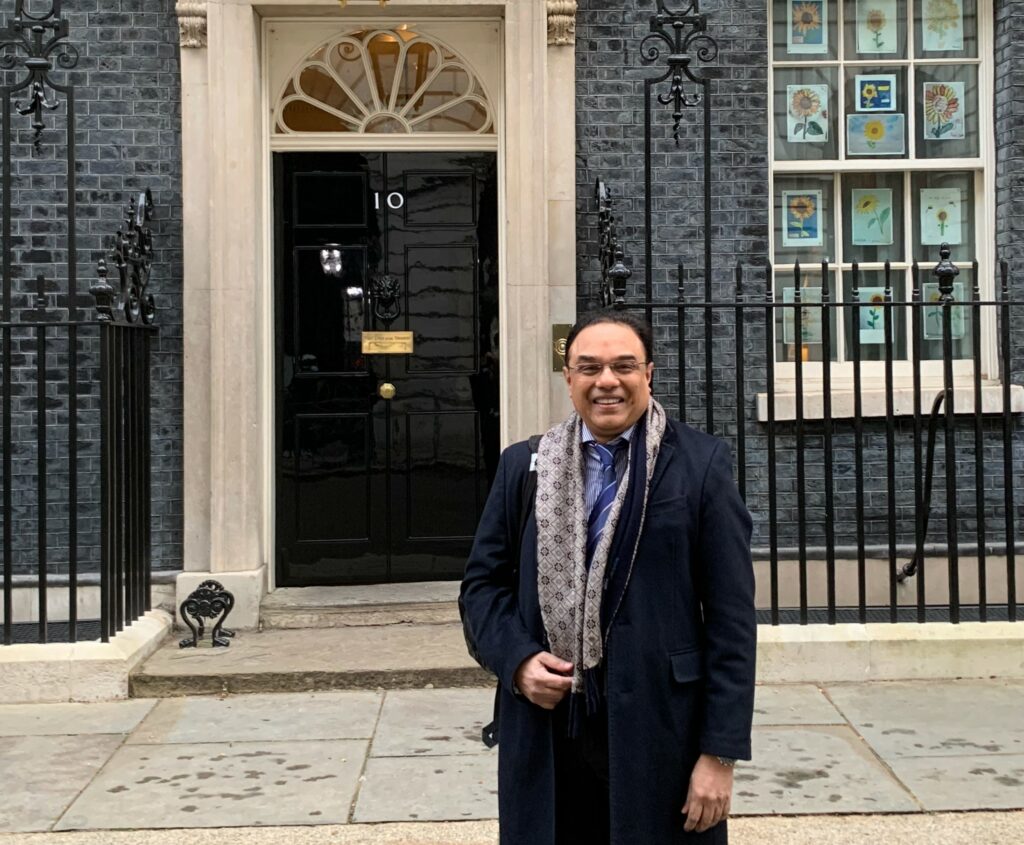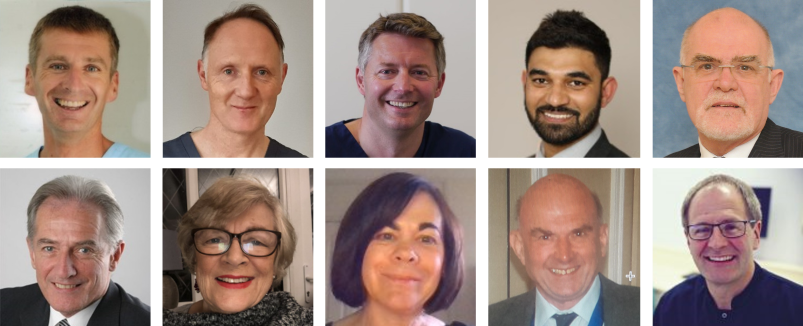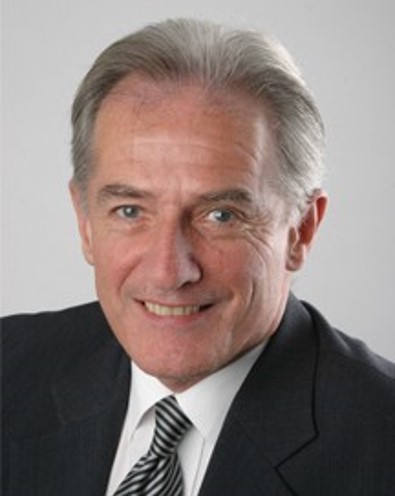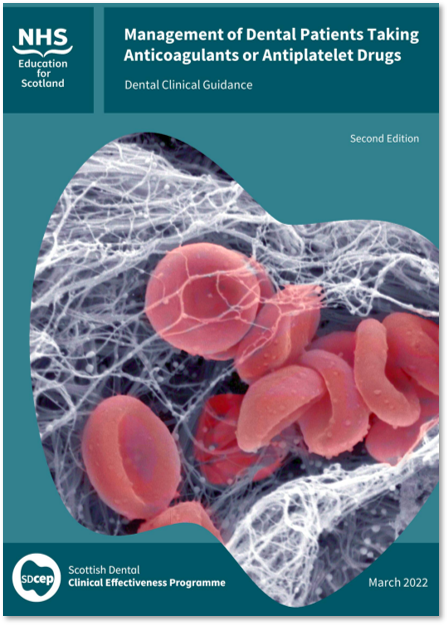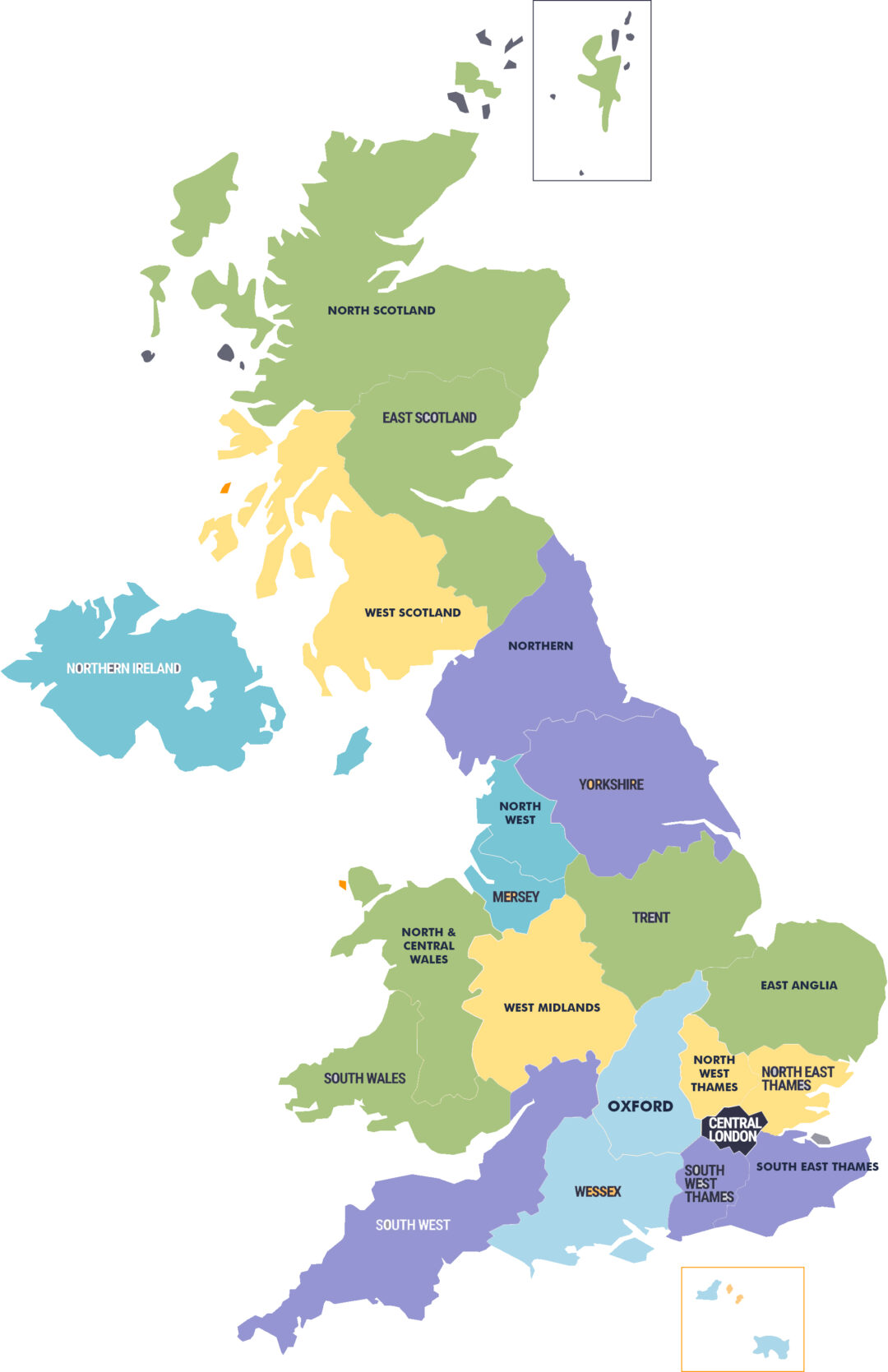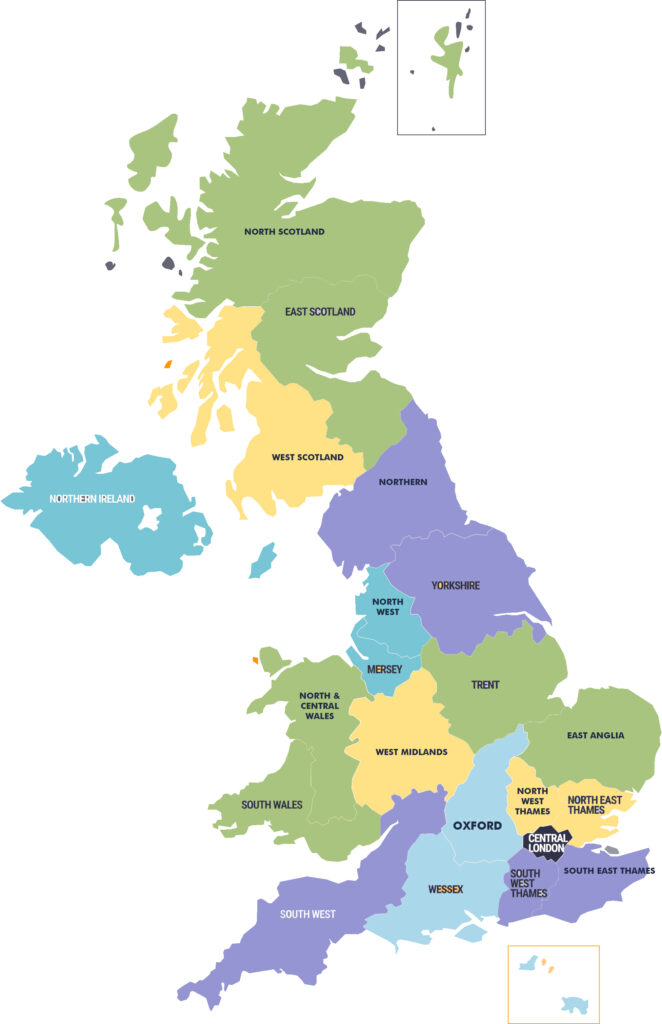Voting is now open for seats on the Council of the College of General Dentistry, and all eligible members are encouraged to cast their vote.
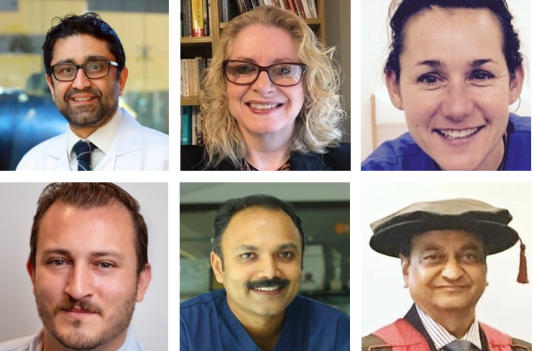
The Council is the voice of our members, overseeing our role as a professional body and guiding the development of the College to fulfil its mission. Council members serve three-year terms and elections are held annually on a rotational basis. Seven seats are being elected this year, with elected candidates due to serve from June 2022- June 2025.
A ballot of eligible members is required for three of these seats:
- National representative
- Wessex & Oxford representative
- Overseas representative
All Full Members, Associate Fellows and Fellows of the College are eligible to vote, and have until 2359 on Friday 27 May 2022 to do so.
Members who have registered a UK address with CGDent are entitled to vote in the election of the national representative, and those within the College’s Wessex & Oxford region are also invited to elect their regional representative. Those whose College address is outside of the UK are entitled to vote for the overseas representative.
All eligible members as of 14 March 2022 were sent an email on Wednesday 27 April 2022 by the College’s election services provider, Mi-Voice, to the email address which the member has registered with the College. This email confirms the election(s) for which the member is eligible to vote, and contains a unique link through which they can complete and submit their vote(s) online.
Please ensure that your membership of CGDent is up to date before you vote, otherwise your vote might not count. The CGDent member register displays a list of all current full members. Alternatively, you can contact us at [email protected] to confirm your membership status. If you do need to renew your membership, you can do this easily online at https://cgdent.uk/renew/
New members joining during the voting period will also be eligible to vote, but should note that it will take around a week for their unique voting details to be issued to them, and late votes will not be counted.
The candidates are listed below with their election statements.
Following the election, the results will be announced on Wednesday 1 June 2022.
If you are an eligible member but cannot find the email from Mi-Voice inviting you to vote in your inbox, please check your junk or spam folder, and if necessary double-check the email account you have registered with the College by logging in at https://cgdent.uk/my-account.
If you experience any technical difficulties submitting your vote(s), please contact Mi-Voice at [email protected] or on 02380 763987.
Please note, if a candidate standing for both a national and regional seat were to receive the most votes in both elections, they would be deemed to be elected to the regional seat, and their name withdrawn from the contest for the national seat.
Candidates for the National seat
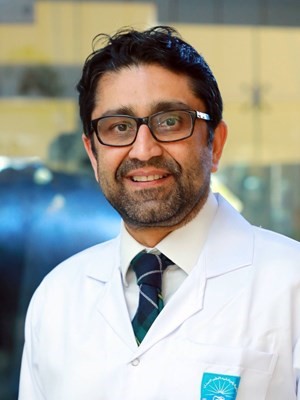
Kashif Hafeez
“I want to play my part in delivering education for the college, establishing courses for GDPs. I want to initiate a mentoring platform for the College, so the GDPs are looking towards the college in the times when they need help and support.”
Candidate statements
Tell us a little about yourself, your background and your professional and personal interests.
I am a practising implant dentist and most of my working week is spent treating my patients and mentoring young dentists for MOS procedures & Dental Implantology. I teach on different courses and help young dentists to improve their skills. In addition to being the fellow of this institution I am also a fellow of Royal college of Surgeons Edinburgh and Ireland and also examine for these colleges. I have completed my post graduate certificate in mentoring, coaching and leadership, I often help dentists in difficulty during the stressful times in their career. I am involved in teaching and training as an honorary clinical teaching fellow for UCL, Eastman Dental Institute and visiting lecturer for Kings College London. I am also performing my duties as Dental Ambassador, Royal College of Surgeons Edinburgh for the South West region. I am also a fellow of the faculty of dental trainers, RCSEd.
Why did you decide to stand for election?
I feel that I can bring my experience and exposure with different organisations to the college and play a part in establishing and strengthening the college’s ambition of training and helping the dentists to grow. I am one of the few dentists in UK who have a formal post graduate qualification, a certificate from Chartered management Institute in mentoring, coaching and leadership, a post graduate certificate in medical & dental education from Oxford Brookes University. I want to strengthen the education platforms offered by the college and initiate the concept of supporting the general dentists through the college platform. I think continuous support and mentoring is an aspect most of the other colleges lack and our college can actually take the lead and establish as a college which support the members with mentoring & coaching. As an international lecturer, I can represent college at International platforms and deliver the college message internationally.
What are your ambitions for the organisation?
I want to play an active part in the delivery of education through the college platform, develop and establish delivery of continuous support for the members and fellows of the college. We as dental professionals have a high level of stress in our professional life, I have experience of dealing and helping dentists in difficulty. I want to initiate a platform in the college which will help the general dentists if they are undergoing difficult circumstances, this platform can truly make this college the representative of the general dentist and an organisation they can look towards.
I also think there is a huge gap in the delivery of education, as this responsibility is taken up by the course run by different academies and individuals, which are useful. However, this college as an institution can play its part in delivering quality educational courses for all of the dental profession.
Give some examples from your professional or personal life that show you have the right skill set to make a contribution to the work of the Council.
I have been involved in teaching and training for many years, I am the founding course tutor for the MOS for GDPs course at Londec, Kings College. We established this course 8 years back and this course has been running successfully since then. I have been running MOS for GDPs courses for HEE for many years and have been running them in London and in Thames valley region. We have just initiated a new MOS for GDPs course with NIMDTA Belfast from last year and have been very successful.
Two days of my working week is helping other dentists, mentoring them for MOS and Dental Implantology, during this time the dentists have the chance to improve and recognise their shortcomings.
I with other mentors as a group ran a successful mentoring program for dentists in difficulty in Thames Valley and helped dentists during the stressful times.
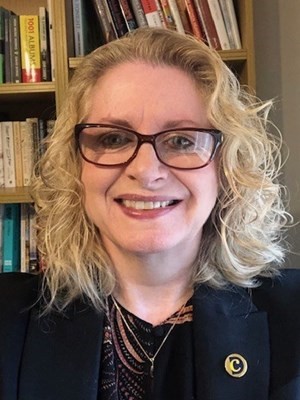
Helen Kaney
“I am knowledgable, hard working and committed to CGDent and would be very grateful and honoured to receive your vote. I believe that I can use my knowledge, skills and experience for the benefit of CGDent, and the whole profession, and I will work tirelessly, with other colleagues, if re-elected.“
Candidate statements
Tell us a little about yourself, your background and your professional and personal interests.
I am a Glasgow University graduate, qualifying in 1987, and spent many years in general dental practice. As a student and young dentist I always had an interest in law and ethics and later studied law before training and working as a solicitor for several years, acting for dentists (and occasionally doctors) on the instructions of their indemnity provider/defence organisation. I have also worked as a clinical assistant at Guy’s Hospital and at Glasgow Dental Hospital in restorative dentistry, teaching and supervising students.
I am now involved at senior level at MPS/Dental Protection, leading a team of dentolegal consultants who help members in the UK, Ireland and other countries. My professional interests primarily involve the interpretation of the law as it relates to dentistry and the effective defence and representation of dentists who are facing claims and regulatory hearings. Personal interests include travel and looking after young nephews.
Why did you decide to stand for election?
I have now been a FGDP (UK) Board/CGDent Council member for 3 years and I have worked hard in the interests of members with other FGDP (UK)/CGDent Council colleagues, especially during the challenges of exiting from RCS England in 2021, together with the challenges of the pandemic.
I and am very keen to continue this involvement in the profession, on the Council of CGDent, and to continue to work in the interests of dentists and the dental team in as many ways as I can. I would be honoured to be re-elected to CGDent and to help the organisation build on the success that has already been achieved. I believe that there are exciting times ahead, as we work together with the dental profession as a whole, and key stakeholders, in evolving and developing a modern, progressive College that will benefit the whole dental team for the future.
What are your ambitions for the organisation?
The possibilities for CGDent are endless and extremely exciting and I would encourage all members of the dental team to become involved. This is a once in a lifetime opportunity for the dental profession to develop a College that has the interests of general dental practice, and all team members, as its main reason d’etre and to become involved and to shape what the future looks like in terms of the career pathways and future guidance documents which are to be updated and developed. There is the opportunity for the dental profession to become involved as individuals from the beginning, to enable a whole team approach to career development, and to assist the evolution of a modern progressive College for a modern progressive dental profession. We have never had this opportunity before and we must work together to ensure that CGDent becomes the voice of the profession for the future.
Give some examples from your professional or personal life that show you have the right skill set to make a contribution to the work of the Council.
I have had a varied and very interesting career to date, combining my professional loves of dentistry and law in a way that has allowed me to help members of the dental profession when they have been in difficulty, as a dually qualified dentist and solicitor, and it has been my absolute privilege to do so.
I have to date been involved in various CGDent committees, particularly the Professional Affairs Committee, which is tasked with overseeing the development of the professional guidance documents that were produced by FGDP (UK), the responsibility for which has been assumed by CGDent. I believe that my legal knowledge and training and my experience of working with Dental Protection will enable me to continue to contribute effectively to the work of both the Professional Affairs Committee, and the Council in general, as we move into the future as a College for the whole dental team.
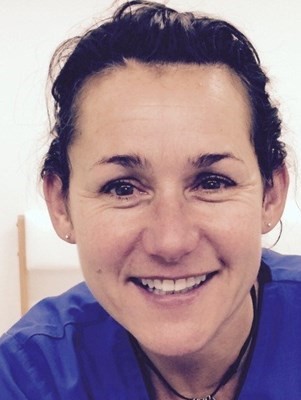
Fiona Sandom
“I am passionate about career development for the whole dental team, and would bring that energy and commitment to encouraging the whole dental team to join the college, to develop themselves and their careers to benefit patient care and the motivation to contribute fully to the aims of the College.“
Candidate statements
Tell us a little about yourself, your background and your professional and personal interests.
I began in dentistry as a trainee dental nurse in 1990. I moved on to Manchester to train as a dental hygienist, on qualification from Manchester Dental Hospital in 1993, I returned to Anglesey and worked as a hygienist until I qualified as a dental therapist in 1999. In 2013, I gained my MSc in Medical Education from Cardiff University. I currently work part-time in general dental practice, for HEIW as PLVE Chair and Dental Professional Support Unit Lead and as North Wales Regional Lead Dental Educator. I hold a post at Bangor University, in the AWFDCP. I am also an Education Associate with the GDC, an Examiner for the RCS Edinburgh an External Examiner for Diploma in Dental Nursing Programme Trinity College Dublin and a Past President of the British Association of Dental Therapists.
In my spare time, I enjoy swimming, cycling and running and compete in triathlons.
Why did you decide to stand for election?
Starting my career as a dental nurse and have been fortunate expand my career by skills escalators, I would like to join the council to use my experience within dentistry and education to meet the vision of College of General Dentistry.
I was proud to have been invited to be a member of the College of General Dentistry Reference Group for the career pathway work and excited by the vision and thoroughly enjoyed contributing.
I am passionate about patient access to care and believe that enhancing educational opportunities, promoting interprofessional care for the dental team is one way that we are able to contribute to achieving this.
In order to address the dental manpower issues, we are facing, it is also important that we are able to retain all members of the dental team and by providing career pathways and cultivating a passion for learning.
What are your ambitions for the organisation?
I would like the organisation to be the first thought when dental professionals think of education and training for their careers in dentistry and as the point of reference for standards within dentistry.
I would like the college to do this by providing a professional home for all members of the dental team to enhance their careers, from undergraduate and trainee to experienced dental professionals and those who have had career breaks or returning to the profession. As well as supporting dental professionals coming to work in the UK for the first time, to develop professional socialisation and understanding of the dental systems in the UK. In turn the aspiration would be to enhance the quality of dental provision through education and standards, personal and career development and retention.
In addition the development of research in Primary care, ensure research is relevant and pragmatic for use in primary care.
Give some examples from your professional or personal life that show you have the right skill set to make a contribution to the work of the Council.
I am used to attending and contributing to committee and council meetings as well being a chair. I have a background in education and as Education Associate for the General Dental Council. I am currently at Bangor University, carrying out Health Service Research evaluation at Bangor University for my PhD and could use my learning and experience to feed into Council and it’s aim of driving the college forward with education and training, and professional development as well as supporting the development of standards.
As Past President of the British Association of Dental Therapists I have experience of working on a National level and understand the differences in the four Nations of the United Kingdom, this has been particularly relevant working on the proposal for the use of exemptions in medicines legislation by dental hygienists and dental therapists across the United Kingdom with NHS England.
Candidates for the Wessex & Oxford seat

Kashif Hafeez
“I want to play my part in delivering education for the college, establishing courses for GDPs. I want to initiate a mentoring platform for the College, so the GDPs are looking towards the college in the times when they need help and support.”
Candidate statements
Tell us a little about yourself, your background and your professional and personal interests.
I am a practising implant dentist and most of my working week is spent treating my patients and mentoring young dentists for MOS procedures & Dental Implantology. I teach on different courses and help young dentists to improve their skills. In addition to being the fellow of this institution I am also a fellow of Royal college of Surgeons Edinburgh and Ireland and also examine for these colleges. I have completed my post graduate certificate in mentoring, coaching and leadership, I often help dentists in difficulty during the stressful times in their career. I am involved in teaching and training as an honorary clinical teaching fellow for UCL, Eastman Dental Institute and visiting lecturer for Kings College London. I am also performing my duties as Dental Ambassador, Royal College of Surgeons Edinburgh for the South West region. I am also a fellow of the faculty of dental trainers, RCSEd.
Why did you decide to stand for election?
I feel that I can bring my experience and exposure with different organisations to the college and play a part in establishing and strengthening the college’s ambition of training and helping the dentists to grow. I am one of the few dentists in UK who have a formal post graduate qualification, a certificate from Chartered management Institute in mentoring, coaching and leadership, a post graduate certificate in medical & dental education from Oxford Brookes University. I want to strengthen the education platforms offered by the college and initiate the concept of supporting the general dentists through the college platform. I think continuous support and mentoring is an aspect most of the other colleges lack and our college can actually take the lead and establish as a college which support the members with mentoring & coaching. As an international lecturer, I can represent college at International platforms and deliver the college message internationally.
What are your ambitions for the organisation?
I want to play an active part in the delivery of education through the college platform, develop and establish delivery of continuous support for the members and fellows of the college. We as dental professionals have a high level of stress in our professional life, I have experience of dealing and helping dentists in difficulty. I want to initiate a platform in the college which will help the general dentists if they are undergoing difficult circumstances, this platform can truly make this college the representative of the general dentist and an organisation they can look towards.
I also think there is a huge gap in the delivery of education, as this responsibility is taken up by the course run by different academies and individuals, which are useful. However, this college as an institution can play its part in delivering quality educational courses for all of the dental profession.
Give some examples from your professional or personal life that show you have the right skill set to make a contribution to the work of the Council.
I have been involved in teaching and training for many years, I am the founding course tutor for the MOS for GDPs course at Londec, Kings College. We established this course 8 years back and this course has been running successfully since then. I have been running MOS for GDPs courses for HEE for many years and have been running them in London and in Thames valley region. We have just initiated a new MOS for GDPs course with NIMDTA Belfast from last year and have been very successful.
Two days of my working week is helping other dentists, mentoring them for MOS and Dental Implantology, during this time the dentists have the chance to improve and recognise their shortcomings.
I with other mentors as a group ran a successful mentoring program for dentists in difficulty in Thames Valley and helped dentists during the stressful times.
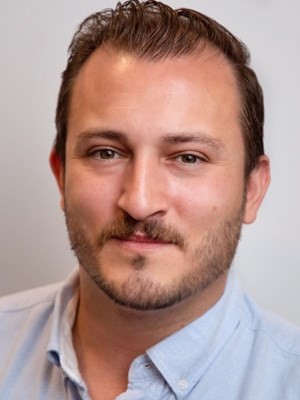
Sami Stagnell
“Dentistry is capable of being bigger and better than it ever has been. My drive and ambition to realise this is matched by my passion for our profession and fuelled by the experiences I’ve gained over the last decade. Realising a real home for dentistry is my priority.”
Candidate statements
Tell us a little about yourself, your background and your professional and personal interests.
Following graduation I was fortunate to gain a broad experience between primary and secondary care settings. I recognised early on that dentistry required a pragmatic and expansive skillset and so threw myself into gaining as much experience as possible, This lead me to holding posts in general practice (NHS and private) and also hospital where I eventually specialised in oral surgery. Amongst my clinical practice I have trained extensively across subspecialties such as facial aesthetics and Implantology and now lecture to postgraduates too. Since specialising I have continued to work mostly in primary care but maintain intermediate and secondary care posts which has given me a good grasp of what clinicians in all areas face as well as the demands placed on those across the whole profession.
In my spare time you’ll find me in the South Downs cycling or on the coast kitesurfing.
Why did you decide to stand for election?
There are multiple societies that exist for the profession, but none whose purpose has an opportunity to polarise general dentistry like this one. Here I stand for re-election; I was fortunate to be involved with the college during its transition from FGDP through to the CGD and I see my mission as still ongoing. We are in an infant stage of the new college and to be able to continue supporting work on the exciting projects at this fundamental time is important to me.
There is an incredible opportunity for the college to be a true home to general dentistry, incorporating the whole team. Never has such a chance existed – the energy that exists in the council and the faculty as a whole is driving incredible change and it feels right to continue to fuel this momentum whilst it exists in the way that it does.
What are your ambitions for the organisation?
In its new state, the chance to be a driving force for general dentistry has never been so important. The pandemic realised much anxiety around the profession and identified more than ever that all members of the team feel regularly isolated. By driving a collective mentality forward and a sounding board that recognises and validates the contribution of other societies and faculties too, we can encourage generalists to realise inspiring and empowering careers.
Using the incoming career frameworks and the new fellowship model, we can blow old ideals and false values out of the profession and foster stronger and robust relationships between peers and within the whole team.
Dentistry has to reconsider its image publicly and with other medical specialties too: here we have a chance to evolve our reputation so others can see the value generalists bring to the table.
Give some examples from your professional or personal life that show you have the right skill set to make a contribution to the work of the Council.
I am fortunate that over the last decade I have held posts throughout different political groups and these include –
- BDA Young Dentists and Central Committee for Hospital Dental Services
- Honorary Secretary to the Odontology section at the Royal Society of Medicine
- National Trainee representative for British Association of Oral Surgery
- One of the first Clinical Leadership Fellows with Health Education England
- Young ITI ambassador
- Met Branch president BDA
- LDN observer
- member of 3 MCN groups
I also hold postgraduate teaching roles privately and also with the University of Manchester and previously with KCL.
Furthermore I am a practice owner and recognise the very real, daily struggles that many have to deal with.
Candidates for the Overseas seat
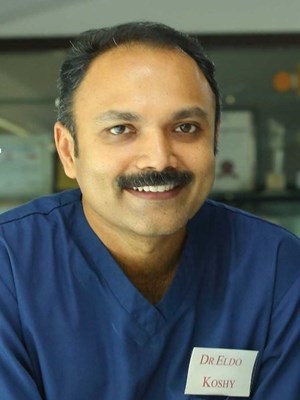
Eldo Koshy
“Become the bridge between the College, dentists and institutions outside the UK. To promote and establish the objectives of the College. To uphold the position of the College among the dental community outside the UK thus uplifting the standard of the profession.”
Candidate statements
Tell us a little about yourself, your background and your professional and personal interests.
I obtained BDS degree in 1995 and Masters in Prosthodontics in 2000. I practice in Cochin,Kerala,India.
I practice general dentistry along with Prosthodontics and Implantology.
I am a Fellow of the College of General Dentistry, Fellow of the American Academy of Implant Dentistry (AAID) and an ITI member.
I have been teaching as a faculty in Prosthodontics for undergraduate and postgraduate students in various dental colleges in India for thirteen years and was the Head of the department of Prosthodontics and Implantology for several years. Currently I train dentists in Prosthodontics and Implantology in my academy.
I am keen in upgrading my professional knowledge and skills at the same time building healthy relationships with colleagues that I meet. This has helped me personally and also resulted in benefitting my peers personally and professionally.
Why did you decide to stand for election?
Dentistry is practiced differently in different parts of the world. CGDent provides opportunities for dentists like me practicing outside the UK to attain high professional standards and top quality postgraduate education in dentistry. CGDent has set gold standards for clinical and non clinical aspects for practicing dentistry. CGDent also offers a range of career pathways to dental professionals and a facility to obtain knowledge and skills at any stage of their career. This method for lifelong learning is unique. By becoming a board member I could effectively disseminate this information to those practicing outside the UK through my association with dentists and dental organisations.
As a board member I will be able to
- Help to initiate and develop dental programmes internationally
- Help the members practicing outside the UK to become Certified Members / Fellows of CGDent
- Help to find acceptance for international courses
- Help international dentists to obtain recognition
What are your ambitions for the organisation?
CGDent is about supporting careers and setting standards. My ambition is to support the professional development of dentists and provide recognition for their achievements irrespective of where they practice.
I envision to cultivate and nurture a strong dental community that strives for continuous improvement in every aspect of patient care through effective education and training extending throughout their career. Lifelong learning with the support of CGDent for personal growth and skill development of international dentists is also my goal.
This would help to establish a professional standing for the dental practitioners and develop excellence in the treatments delivered.
Give some examples from your professional or personal life that show you have the right skill set to make a contribution to the work of the Council.
As an Associate member I had organised two cohorts of hands-on courses for dentists living outside the UK. During my tenure as a Board member though Covid restrictions prevented the commencement of the third batch, I organised an online CPD programme for international dentists on ‘Safe returning to practice’ by eminent speakers in the UK.
My submission before the board regarding the reduction of membership fee for international dentists was well considered. The present discounted membership fee for dentists practicing outside the UK testifies it.
My experience as Review Board Member of the Journal of the Indian Prosthodontic Society and Editorial advisor of the Kerala Dental Journal could be utilised by the board.
I regularly conduct CPD programmes for the Indian Dental Association and have conducted hands on dental training in Sri Lanka and the UAE. I can contribute this experience to organise such training by the board outside UK.
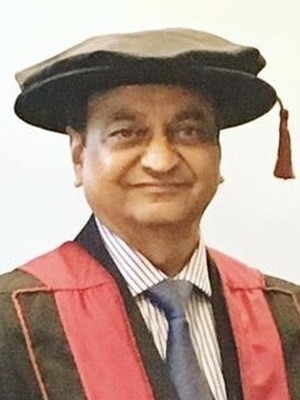
Pankaj Patel
“I have a zeal for promoting oral care and education, both internally and abroad, as recognised by my posts with a string of International Organisations. Hopefully, my involvement will be beneficial to the progression of the college as I am dedicated to the aims and objectives of CGDent.“
Candidate statements
Tell us a little about yourself, your background and your professional and personal interests.
I am a diplomat and was a Board Member (First Overseas Representative) of the FGDP (UK), a Fellow of the International College of Dentists, a Fellow of the Academy of Dentistry International, a Fellow of the Pierre Fauchard Academy, and a Fellow of the American College of Dentists.
I was awarded the National Honor – The Order of Grand Warrior of Kenya (OGW) by his Excellency, the President of Kenya in recognition of outstanding and distinguished services rendered to the nation in Dentistry.
I am a Specialist in General Dental Practice, have a busy private practice and have contributed a vast amount of my time and expertise to actively aid in the development of dentistry in Kenya as well as admirably participating and shaping continuing education in the profession. I was a lecturer and examiner in Restorative Dentistry at Faculty of Dental Sciences, University of Nairobi for over 15 years.
Why did you decide to stand for election?
I was elected the first Overseas Board Member of FGDP(UK) in May 2016.
I am one of the five nominated Founder Trustees of the College of Dental Surgeons of Eastern Africa ( a virtual college, with the principal objective of promoting the advancement of Dentistry in Kenya and the Region through post-graduate training in various Dental Specialities) which is in the final stages of formation.
Kenya has adopted Universal Health Coverage (UHC) as one of the big four priority agenda with the aspiration that all persons in Kenya will be able to use the essential services they need for their health and well being through a simple unified benefit package.
Oral health is a key determinant of overall health and socio-economic development as outlined in the Kenya Oral Health Survey Report of 2015.
Affiliations with CGDent and RCS will be beneficial.
What are your ambitions for the organisation?
I have carried out regular and extensive postgraduate studies in the UK, Europe and the USA to enable me to continue providing very comprehensive oral care at both primary and secondary care levels at the highest standards in Kenya. I have also had a life-long involvement in the building up of health care facilities in Kenya.
I have been a lecturer and examiner at the University of Nairobi Dental School and also been involved with the training of nurses.
I have a zeal for promoting oral care and education, internally and abroad as proved by my posts with a string of international organizations.
I initiated early links with FGDP RCS Eng and set up the first MFGDP study group in Nairobi. I continued my close involvement and support resulting in being elected the first ever overseas member of the FGDP(UK) board.
I hope similar links with FCGDent.
Give some examples from your professional or personal life that show you have the right skill set to make a contribution to the work of the Council.
FGDP(UK) Board Member 2016-2019
Academy of Dentistry International – Regent for Africa and Middle East
Vice President International Affairs
Chaired various committees.
Pierre Fauchard Academy – International Section Chairperson
Trustee Region 11-Africa
International Vice President 2021-2022
President-elect 2022-2023
President 2023-2024
Chaired various committees.
International College of Dentists- Regent, East Africa
International Councillor- Africa
Chaired various committees.
Conducted ICD Convocation/Induction Ceremonies in – Cape Town, South Africa
Alexandria, Egypt
Mombasa, Kenya (twice)
University of Nairobi Dental School- Lecturer for over 15 years
Internal Examiner for BDS
Kenya Medical Practitioners and Dental Council- Registered as the only Specialist in General Dental Practice.
Upper Hill Medical Centre (a purpose-built building completed in 2001 is wholly owned by 30 prominent doctors)- Founder Board Member
Jalaram Medical Services ,an ultra-modern charity medical facility- oversee the Dental Department.
College of Dental Surgeons of Eastern Africa (final stages of formation)-
One of the five Founder Trustees
REMINDER: VOTES SHOULD BE CAST THROUGH THE UNIQUE LINK SENT TO ELIGIBLE MEMBERS BY MI-VOICE BY EMAIL, AND VOTING CLOSES AT 23:59 ON FRIDAY 27 MAY 2022

